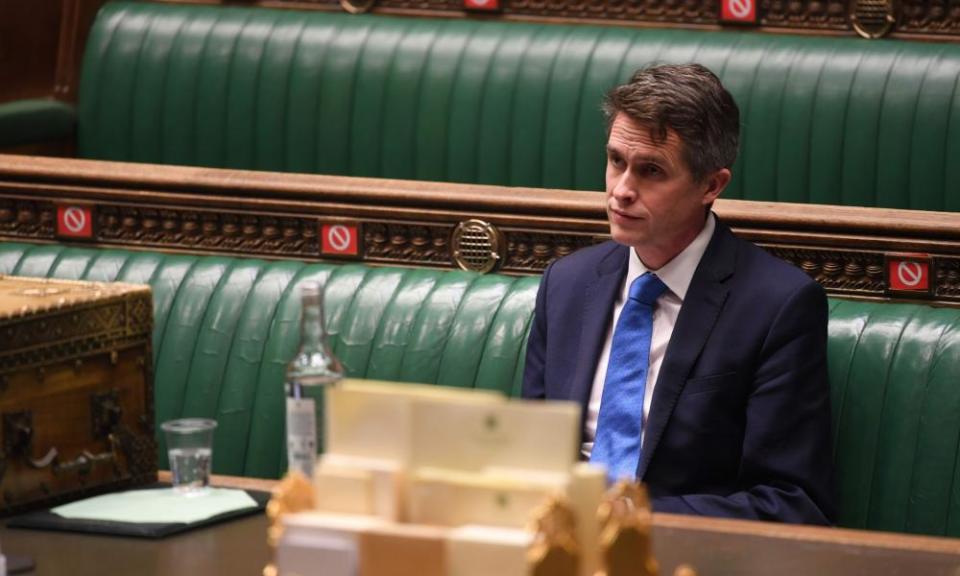Treasury expected to balk at further education loan plans

The government’s plans for a “lifelong loan entitlement” for further education study – a key part of its new skills white paper for England – are predicted to run into stiff opposition from the Treasury.
The white paper says the loan entitlement will be equivalent to “four years of post-18 education” when it launches in 2025, and claims it will “transform the funding system so it is just as easy to get a loan for a higher technical course as it is for a full-length university degree”.
But the proposals, announced by Gavin Williamson, the education secretary, include no firm funding commitments. With the Treasury hostile to expanding the system of loans for higher education, under which all outstanding graduate debts are borne by the government, many in the further education (FE) sector are dubious that their students will receive support at the same level.
Related: Overhaul of skills and vocational education to focus on employability
Tom Bewick, the chief executive of the Federation of Awarding Bodies, said the government’s plans were a “work in progress” and noted that the new loan system would not begin until after the next general election.
“We look forward to the outcome of the comprehensive spending review for the more ‘revolutionary’ aspects of what was promised previously, in terms of better supporting individuals who will experience several career changes throughout their lives in future,” Bewick said. “We’re not quite there yet with this white paper, as it falls quite a bit short of helping to achieve a more cradle-to-grave, universalist, approach to lifelong learning.”
Williamson has only gained a one-year funding commitment for elements of the white paper, such as a £65m strategic development fund to tailor courses to local employers, with other moves reliant on a multi-year funding settlement having to wait until the government’s spending review.
Presenting the white paper to the Commons, Williamson told MPs: “Insofar as long-term plans are concerned, we are going to move to a more coherent, simpler funding model that we are going to design together with the sector. We will be consulting on this later in the spring.”
Frances O’Grady, the TUC general secretary, said: “Overall, funding does not live up to the hype from ministers. Decisions have been delayed yet again, leaving colleges without the secure settlements they need.”
Among the plans is the encouragement of new or revised “higher technical qualifications” for school leavers. These qualifications would be set at level four or five, above the level three qualifications such as A-levels taken in the sixth form and below the level six qualifications commonly associated with undergraduate degrees.
But experts say the Department for Education (DfE) has provided no research or modelling of what demand there might be for these courses, leaving the sector in the dark about what a new suite of qualifications could achieve.
Related: Scrapping in-work training fund will harm economic recovery, warn trade unions
Kirstie Donnelly, the chief executive of the City & Guilds Group, said: “What we aren’t seeing today is a government seizing the opportunity to act quickly and be bold, taking this once-in-a-lifetime opportunity to create an FE education system that is fit for purpose and can truly fulfil its role to help get people back into work.”
Donnelly also said the government had failed to get “anywhere close to connecting the dots between FE and HE … This is again another missed opportunity.”
The white paper includes plans for employers to be closely involved in the development of courses and qualifications, with Williamson saying that by 2030 “we expect nearly all technical courses to follow employer-led standards, ensuring that the education and training people receive are directly skills that they will need in order to be able to get a job”.
The DfE is also aiming to beef up its powers with a call for “new powers to intervene when colleges are failing to deliver good outcomes for the communities they serve”.
Colleges across England have been in financial turmoil as a result of long-term cuts in the sector, and in some cases because of ambitious spending and mergers as the FE sector sought to compete with the more generously funded higher education sector.

 Yahoo Movies
Yahoo Movies 